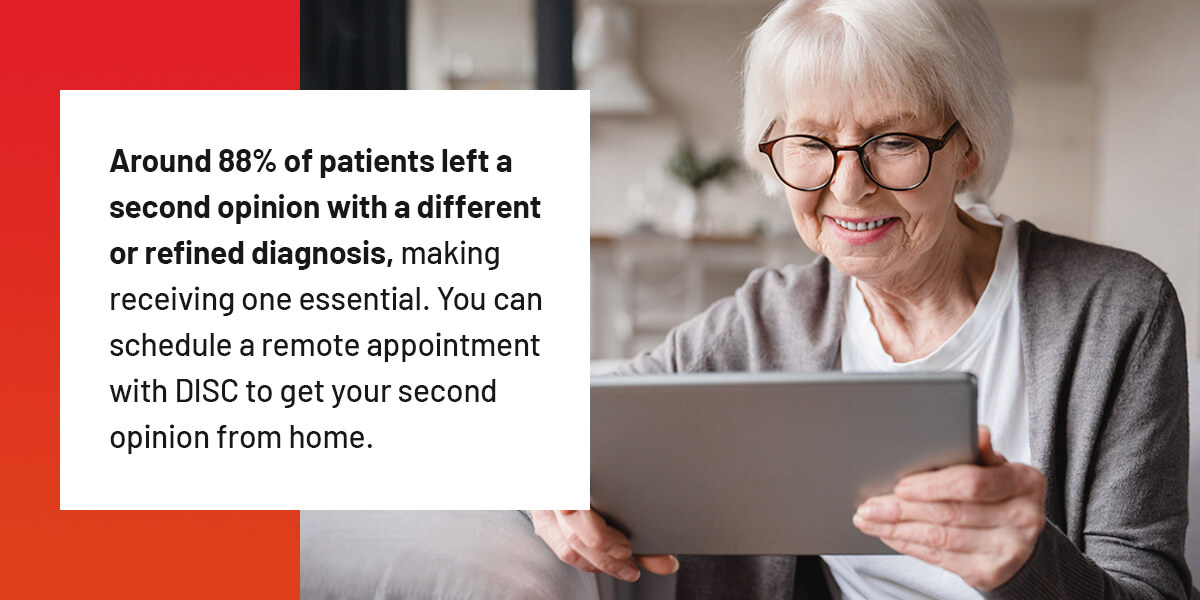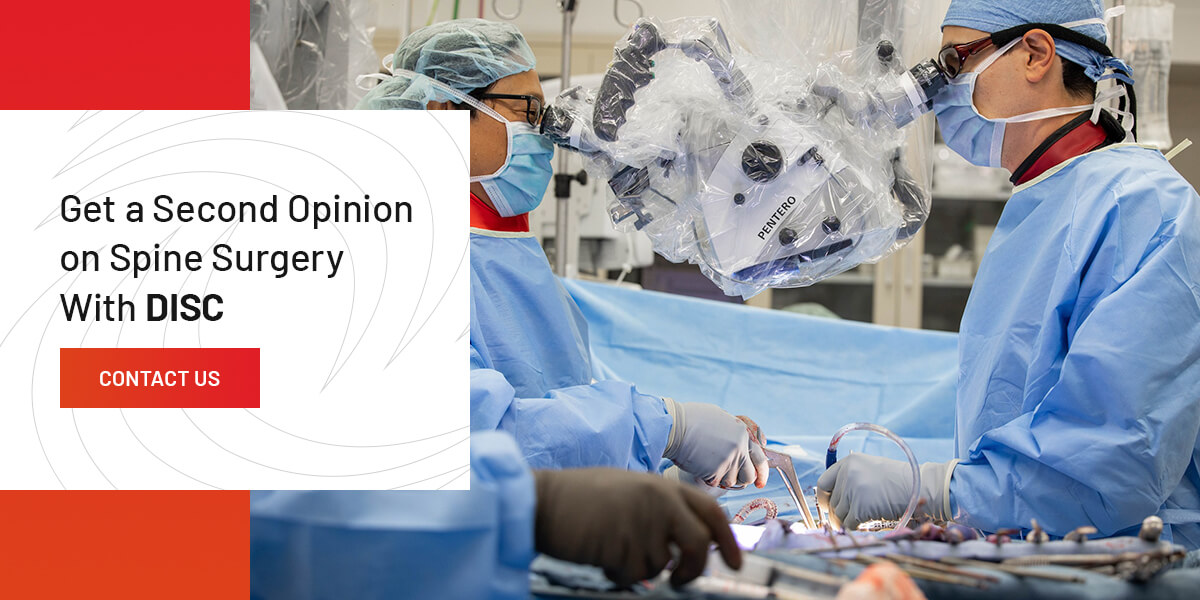
Why should I get a second opinion on spine surgery? Does it make a difference in my outcome? Don’t all spine surgeons perform the same surgeries? The answers to these questions can vary widely depending on which surgeon or doctor you ask, but think about this: When you make major decisions about your life, like how to spend your money and time, you probably don’t rely on just one source of information or one person’s advice. This should apply to medical decisions, too.
When searching for the best medical care, you should seek every available resource to help make the best, most informed choice for your health. Second opinions can help confirm the accuracy of your diagnosis, especially if your condition is complex or rare. Second opinion doctors can also present additional treatment options and provide peace of mind if you’re uncertain or anxious about your treatment plan.
Asking yourself the following questions can help you decide whether to get a second opinion on your spinal condition:
Once you’ve decided to pursue a second spine opinion, it’s normal for a host of additional questions to arise. Below you’ll find the answers to six common questions people have about asking for second spine opinions.
Once you’ve decided to get a second opinion, it’s best to do so as soon as possible. Keep in mind that most surgeons schedule in-person appointments several weeks out, so time could become a factor and an unnecessary worry. The more time you have to gather information and make an appointment for a second opinion prior to your spine surgery, the better. Being informed, educated and knowing your options can help you make a final decision confidently.
Second opinions are very common in today’s world. Surgeons appreciate directness and want to help you make the best decision for your health, so be honest, direct and unemotional when you ask for a second opinion.
Let your second opinion surgeon know about the first surgeon’s diagnosis and treatment plan. Be sure to bring all tests, injections reports, current MRI/CT scans and any relevant X-rays to your appointment.
Try to avoid influencing your second opinion doctor with your impression or opinion of your first surgeon. You want an objective response rather than a reaction to your negative emotions about the first surgeon.
You are not insulting your surgeon by asking for a second opinion. You should never be afraid to ask for one or worry that it would offend your surgeon.
Second opinions are common and often recommended by surgeons if patients are uncomfortable with their current treatment plan. Surgeons often refer patients to others for second opinions as part of their own process of diagnosing a spinal condition. For example, spine surgeons often send patients to a pain management specialist for diagnostic injections to confirm what they suspect when examining you and your records and diagnostic scans.
The next step depends on several factors, especially if the opinions are different. If the opinions differ, try to understand the reasons why. While the second opinion may sound better than the first, it’s important to think through each one logically.
Research the differences in the diagnosis or treatment options. Compare the advantages and disadvantages of each opinion. Evaluate and discuss the pros and cons with your surgeons, friends and family.
Ultimately, you need to trust your instincts. Which surgeon do you trust, and which surgery best benefits you? How much will the surgery cost, and how much time will you be out of work?
There can be a lot of information to process once you have two spine opinions. If the opinions are different, but you’re not comfortable with either, it may benefit you to seek a third opinion.
If you find yourself in this situation, go back to understanding your condition and diagnosis. Make sure you have the right diagnosis and understand all available treatment options. If a particular treatment option is appropriate and available but has yet to be offered, you may reach out to a surgeon that offers it. When you meet with that doctor, address your concerns with previous opinions and ask if you’re a candidate for the treatment option they offer.
There is no definitive answer to this question. An independent and objective opinion is what you’re after, so on the one hand, going outside your current office or institution is unnecessary. On the other hand, surgeons and institutions sometimes offer different treatment options than others in the same city or state. Furthermore, philosophy, training, experience and surgical treatment methods can vary significantly from surgeon to surgeon.
Again, it’s best to think through your options thoroughly and trust your instincts.

The Desert Institute for Spine Care (DISC) offers in-person (Phoenix, AZ office) and affordable virtual second opinions to make navigating spine care easier. Virtual second opinions allow you to receive an expert medical opinion from a highly qualified spine specialist without traveling to our clinic in Phoenix, Arizona, making them perfect for patients who live in remote areas or have mobility issues. Virtual Second Opinions are most likely not covered by insurance plans.
Around 88% of patients left a second opinion with a different or refined diagnosis, making receiving one essential. You can schedule a remote appointment with DISC to get your second opinion from home. At least 48 hours before your appointment time, you’ll create a Patient Portal account, upload your scans and complete the required patient forms. On the day of your appointment, our Medical Assistant will help you check in for your appointment from your smartphone, tablet or webcam-enabled computer.

The Desert Institute for Spine Care is an orthopedic spine center serving the greater Phoenix, Arizona, area. Our spine specialists are board-certified, fellowship-trained, highly experienced orthopedic surgeons who use the latest diagnostic tools and techniques to provide accurate diagnoses and personalized treatment plans.
Reach out to us today if you have further questions or are interested in a second opinion from one of our surgeons. We look forward to meeting you!